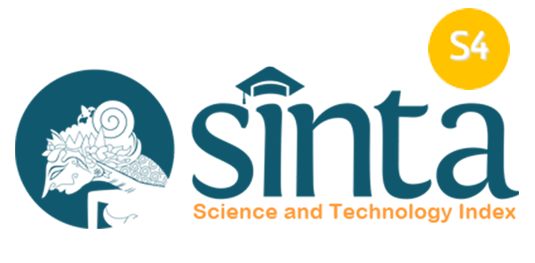Online Assessment of Electric Circuit based on Machine Learning During Covid-19 Pandemic Situation
Abstract
Due to the Covid-19 pandemic crisis, educational institutions have to change their teaching styles because students cannot go to the school (on-site). Therefore, the purpose of this study was to learning online assessment of electric circuit based on machine learning. To achieve the online assessment, machine learning has been applied as a powerful algorithm to realize the novel online assessment for electric circuit course of bachelor students at the department of electrical technology education, King Mongkut’s University of Technology Thonburi, Thailand. To achieve the data collection process, speech to text algorithm has been applied. Next, feature extraction would be adopted as the main key to extracting the knowledge from the data from speech to text algorithm. The output of feature extraction is the dataset of the proposed system. Finally, the clustering algorithm would be applied to set up the learning process of the proposed method. The accuracy of the proposed method can reach 100% when the word feature is appropriate.
Keywords
Full Text:
PDFReferences
Azizah, E. V., Nandiyanto, A. B. D., Kurniawan, T., and Bilad, M. R. (2021). The effectiveness of using a virtual laboratory in distance learning on the measurement materials of the natural sciences of physics for junior high school students. ASEAN Journal of Science and Engineering Education, 1(3), 175-182.
Chen, Chih-Ming, Yi-Yun Chen, and Chao-Yu Liu. (2007). Learning performance assessment approach using web-based learning portfolios for e-learning systems. IEEE Transactions on Systems, Man, and Cybernetics, Part C (Applications and Reviews), 37(6), 1349-1359.
Estrellan, A., Ferrariz, K. J., Lazona, P. A., Madres, V. E., and Estrellan, J. C. (2021). E-learning amidst the pandemic: teachers’ perspective in the Philippines. ASEAN Journal of Science and Engineering Education, 1(2), 93-96.
Hernawati, D., Nandiyanto, A. B. D., and Muhammad, N. (2021). The use of learning videos in order to increase student motivation and learning outcomes during the COVID-19 pandemic. ASEAN Journal of Science and Engineering Education, 1(2), 77-80.
Hussain, W., Spady, W. G., Khan, S. Z., Khawaja, B. A., Naqash, T., and Conner, L. (2021). Impact evaluations of engineering programs using abet student outcomes. IEEE Access, 9, 46166-46190.
Ma, J., and Zhou, D. (2000). Fuzzy set approach to the assessment of student-centered learning. IEEE Transactions on Education, 43(2), 237-241.
Nafsi, N. R. R., Maryanti, R., and Wulandary, V. Analysis of teacher skills in e-learning content development during distance learning during the covid-19 pandemic. Indonesian Journal of Teaching in Science, 2(1), 1-10.
Pardede, E., and Lyons, J. (2012). Redesigning the assessment of an entrepreneurship course in an information technology degree program: Embedding assessment for learning practices. IEEE Transactions on Education, 55(4), 566-572.
Rahmawati, F., Achdiani, Y., and Maharani, S. (2021). Improving students’ learning outcomes using 5e learning cycle model. ASEAN Journal of Science and Engineering Education, 1(2), 97-100.
Sidik, H., and Masek, A. (2021). The effects of problem-based learning in students reading comprehension for mastering the content and vocabulary acquisition. ASEAN Journal of Science and Engineering Education, 1(2), 87-92.
Yanes, N., Mostafa, A. M., Ezz, M., and Almuayqil, S. N. (2020). A machine learning-based recommender system for improving students learning experiences. IEEE Access, 8, 201218-201235.
DOI: https://doi.org/10.17509/ijotis.v1i2.41188
Refbacks
- There are currently no refbacks.
Copyright (c) 2021 Universitas Pendidikan Indonesia

This work is licensed under a Creative Commons Attribution-ShareAlike 4.0 International License.
Indonesian Journal of Teaching in Science (IJoTIS) is published by Universitas Pendidikan Indonesia (UPI)
 Indonesian Journal of Teaching in Science
Indonesian Journal of Teaching in Science



